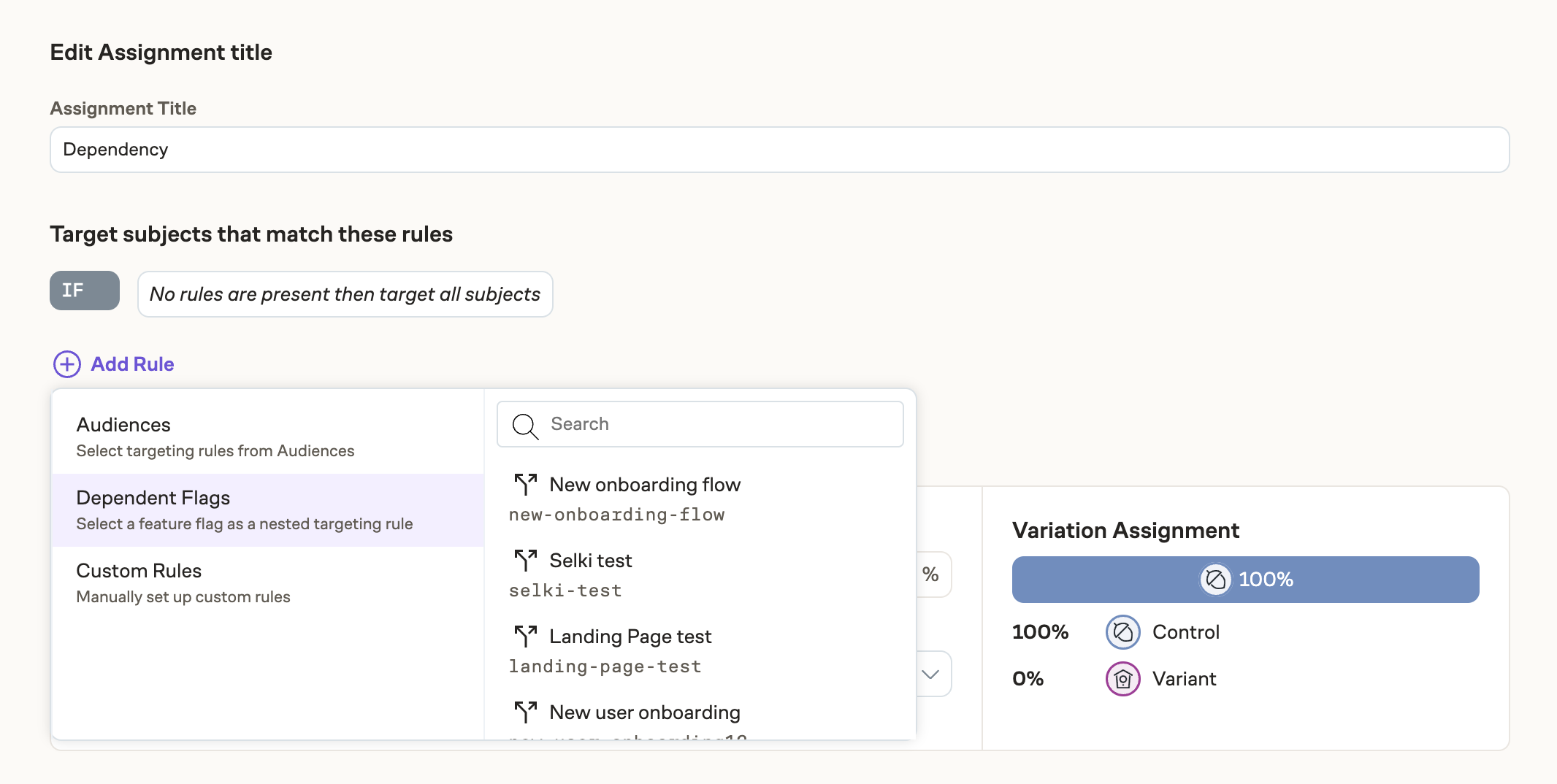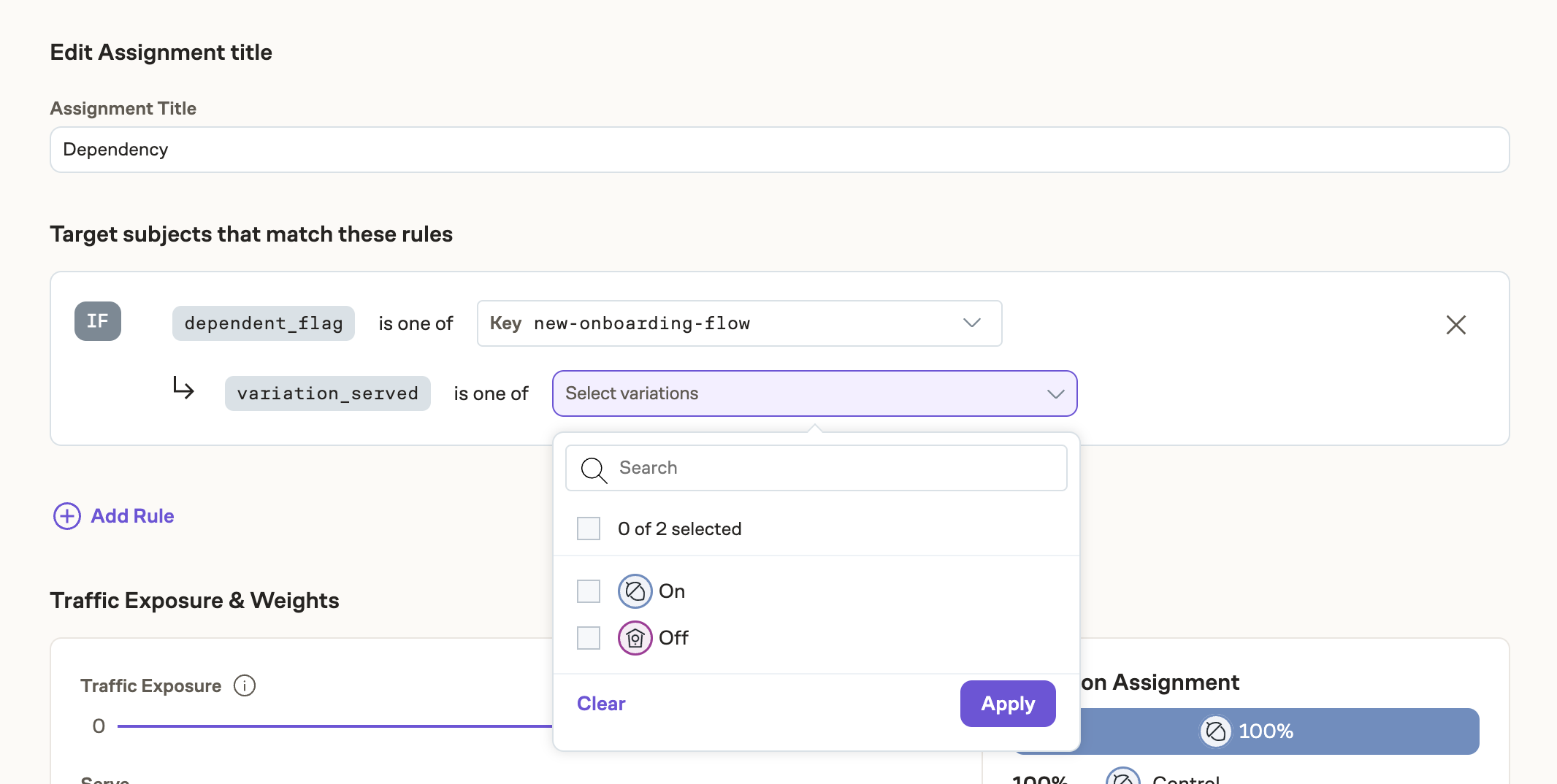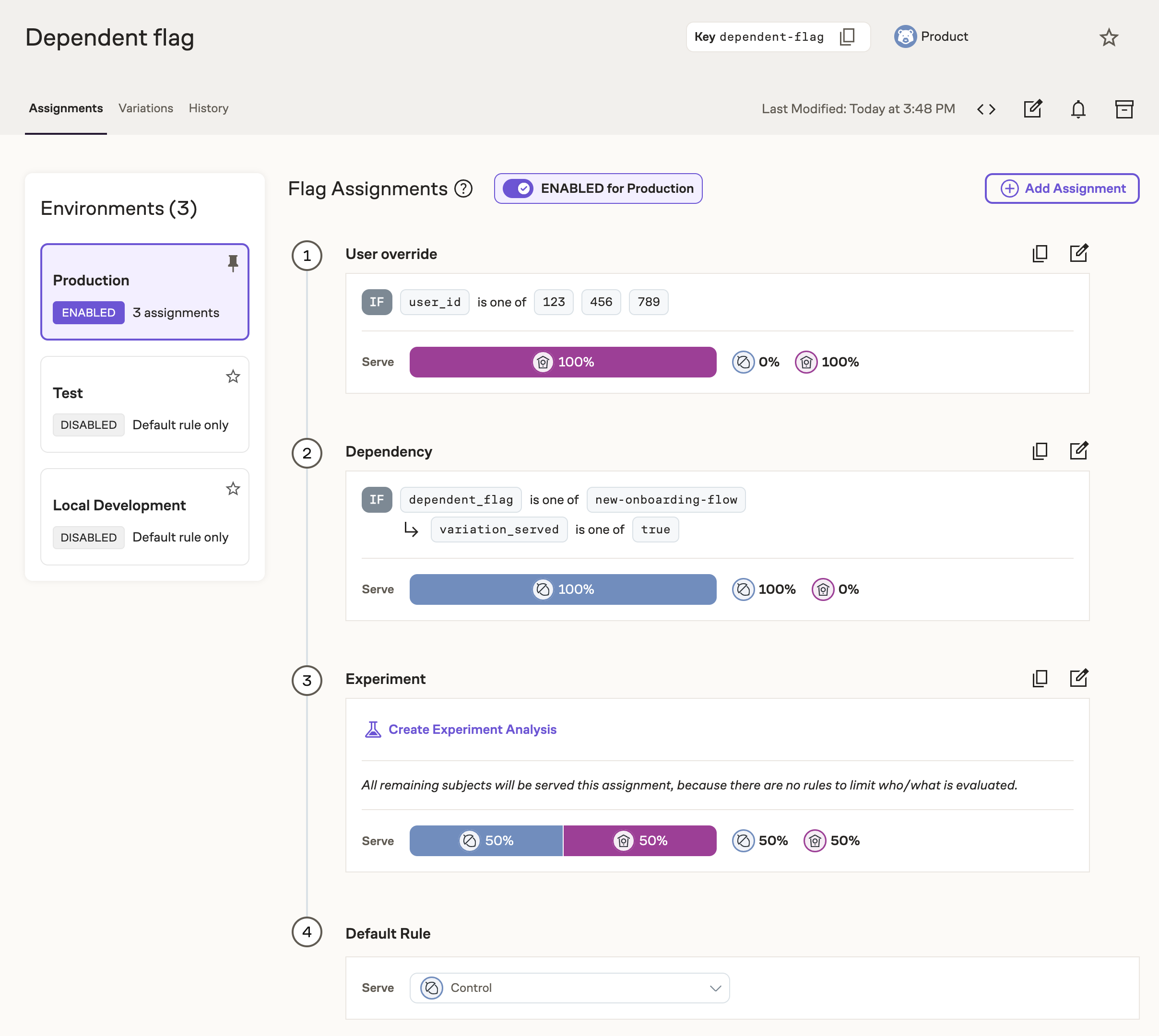Dependent flags
There are times when you want your flag targeting rules driven by what the user experienced with other flags.
For example, if you have a redesigned UI you're rolling out, you may want iterations on this redesign as their own feature flags that are only applicable to users who are eligible to see this UI revamp. Only users who are enabled for the new UI should also be enrolled in this new flag.
In Eppo, this is extremely easy when using targeting rules for Dependent Flags.
Using Dependent Flags in a Targeting Rule
In a flag, add a feature gate or experiment assignment. From here, you'll be able to add a targeting rule. Select Dependent Flags as the type of rule to add and you'll be able to select any other flag created in Eppo.

Once a flag is selected, you're able to select the variation(s) of the flag the user is evaluated to in order to be eligible for this assignment.

Once you save, you'll see your dependent flag rule in the flag waterfall view. You can choose to make the Dependent Flag rule first so that it's evaluated first, or you can order it below other rules depending on what meets your needs.

Configuring Dependent Flags in code
Like other targeting rules, the get_*_assignment function must pass the relevant information to evaluate the user for the Dependent Flag rule. Specifically the dependent flag key and variation served should be passed in the function, like the following Python example:
import eppo_client
client = eppo_client.get_instance()
new_onboarding_flow_variation = client.get_string_assignment(
"new-onboarding-flow",
"<SUBJECT-KEY>",
{}, # optional subject attributes
"<DEFAULT-VALUE>"
)
variation = client.get_string_assignment(
"<FLAG-KEY>",
"<SUBJECT-KEY>",
{
"dependent_flag": "new-onboarding-flow",
"variation_served": new_onboarding_flow_variation
},
"<DEFAULT-VALUE>"
)